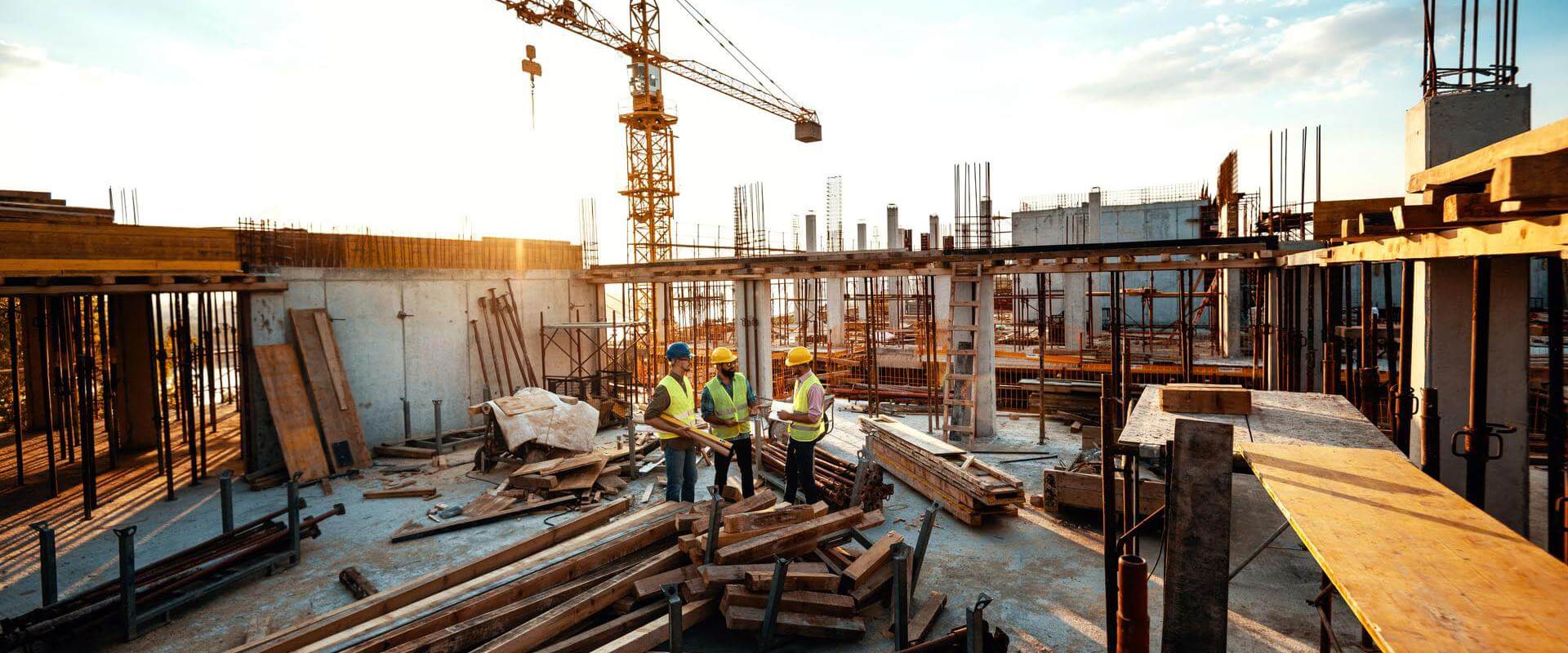The construction industry is having a tough time. It is currently the sector most likely to face cash flow problems, with Q2 2022 data showing 3,665 construction firms in England and Wales going into insolvency.
Inflation and fears of a recession are having an impact on the sector, with many construction firms also facing the added burden of being locked into fixed-price contracts as labour and material costs rise. The Royal Institution of Chartered Surveyors (RICS), also warned earlier this year that a lack of material was impeding UK construction activity.
Could new ways of working, such as offsite construction help the sector?
Construction revolution
Construction projects have for a long time relied on traditional building methods that involve workers creating everything on site.
But a construction revolution is taking place, thanks to technology advancements and new ways of working.
A major part of this is the move towards modern methods of construction (MMC) and offsite construction methods. This sees new materials being used, along with the manufacture, planning, design and assembly of elements of a building project away from the final location – such as in a factory – before being pieced together on the construction site.
The UK construction industry has not been terribly keen to embrace offsite construction, perhaps influenced by the bad reputation of prefabricated housing in the 1950s, and the reticence of lenders to offer mortgages on homes built using offsite building systems.
But the tide is turning. The overall quality of offsite building systems has improved and there has been an increase in the number of firms and offsite housing systems that are securing BOPAS certification and NHBC, or other provider warranties. Making offsite construction much more palatable to mortgage lenders.
Offsite construction expansion
The need for more efficient methods of construction – while cutting costs and hitting sustainability targets – is helping boost the use of offsite construction and has seen an increase in the capacity for offsite housing manufacturing.
There is an ongoing shortage of homes across England and Wales, and the UK government is also looking to deliver 180,000 affordable homes between 2021–26 via the £11.5bn Affordable Homes Programme. Offsite construction could play a major part in this push.
The UK government is also showing its own interest in MMC, with the launch of a new £10bn offsite construction framework in 2023, which will be available for use by all government departments and public sector organisations
The market for offsite housing construction continued to expand during 2021, despite the impact of the pandemic, as confidence, capacity and quality in the sector grew, according to the Offsite Construction Market Report from AMA Research.
Estimates of how much offsite construction is used in the UK ranges from 5–10%, but this is a drop in the ocean compared to countries such as Sweden where, according to estate agency Savills, around 45% of all new homes use offsite construction, and close to 80% of single-family homes.
A recent offsite construction project that gained worldwide attention was the building of the Huoshenshan Hospital in Wuhan, completed in 10 days in 2020 as the pandemic spread.
Top benefits of offsite construction
So, what are some of the reasons why offsite construction could benefit UK construction firms and their customers?
- More sustainable
Offsite construction doesn't use as much heavy machinery or energy as traditional methods of construction and fewer vehicles are needed to bring materials. This could cut carbon emissions by 17–30%. - Cuts construction wastage
Globally, the construction industry is one of the largest consumers of natural resources and along with demolition and excavation, one of the largest sources of waste. In 2018, these industries accounted for 62% of the UK’s total waste, according to the Department for Environment, Food and Rural Affairs.And even more worryingly, a report from the University of Salford Manchester claimed that 13% of materials delivered to a construction site go direct to waste without being used.
Offsite construction can reduce material wastage by using more accurate calculations offsite in a factory setting. - More efficient
Prefabricating building components in a factory reduces the amount of time that workers spend waiting for these components to be created on building sites, and reduces delays caused by problems such as inclement weather. Productivity can also be more easily calculated in a controlled environment, and with staff shortages hitting the industry hard, reduced reliance on labour onsite could benefit many firms.
For construction firms and contractors aiming to maximise cash flow, the use of offsite construction can help decrease costs, improve the capabilities of meeting demand and give your business a competitive edge.
For additional peace of mind, trade credit insurance can help businesses that are at risk of bad debt – providing protection against unpaid invoices and vital information during request for proposals (RFPs).
Find out more about why we pay when your customers don’t
